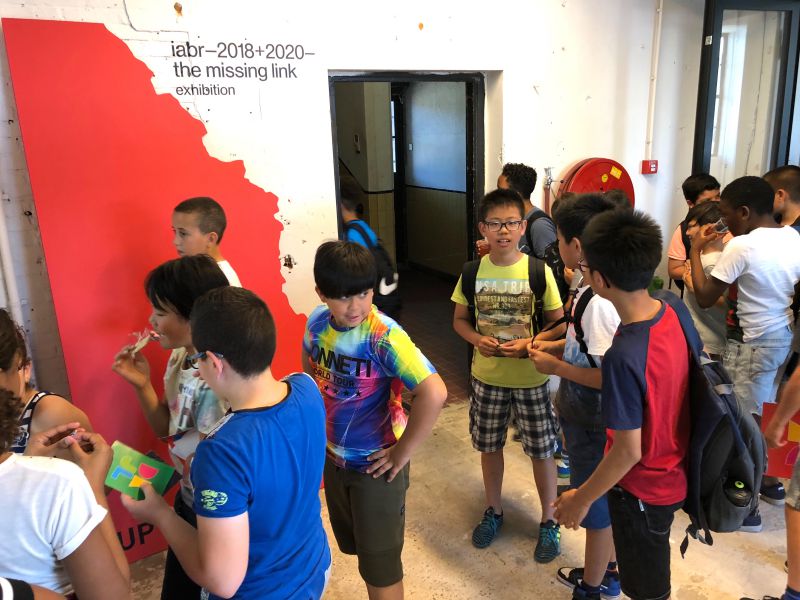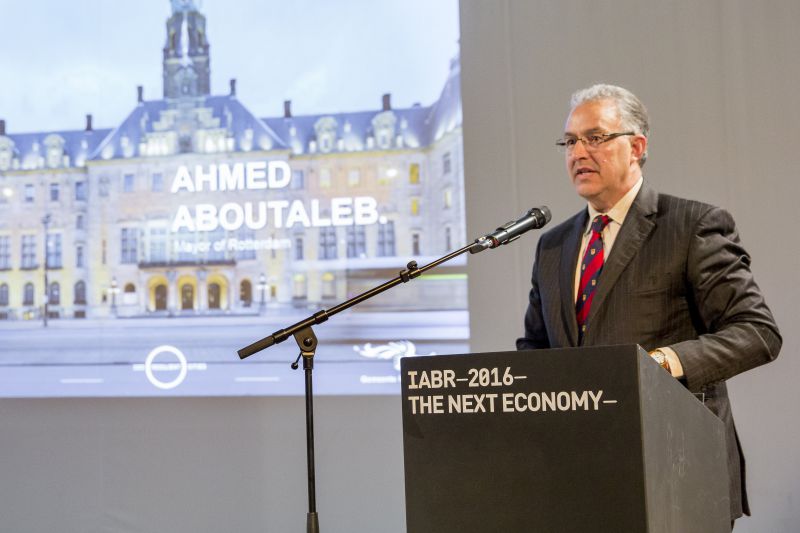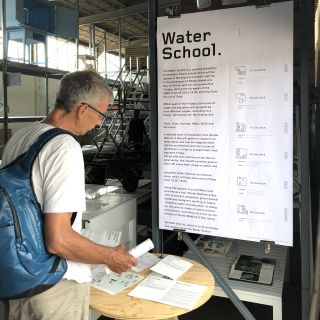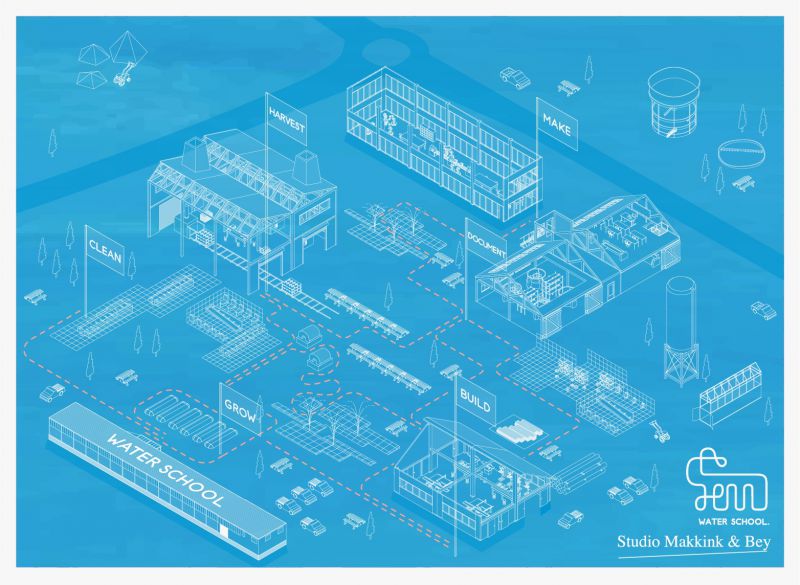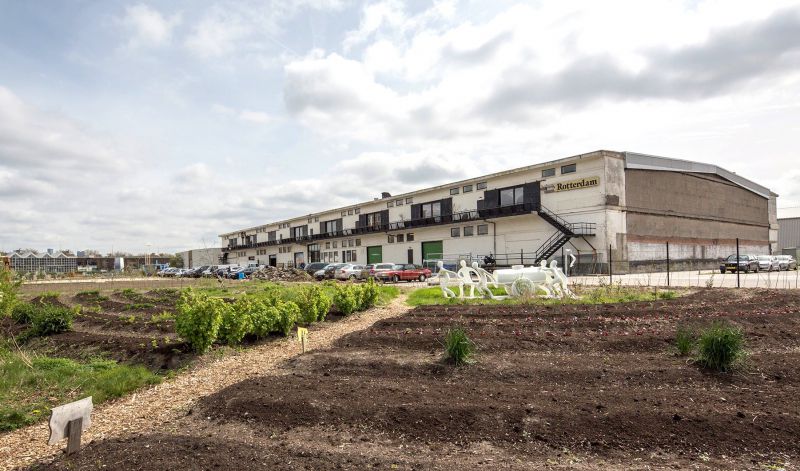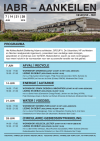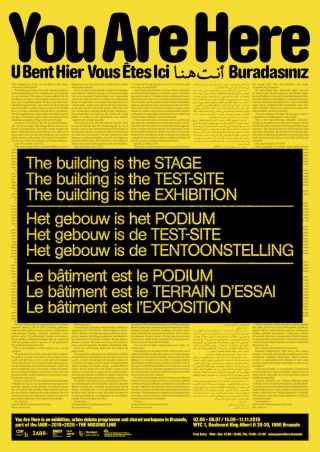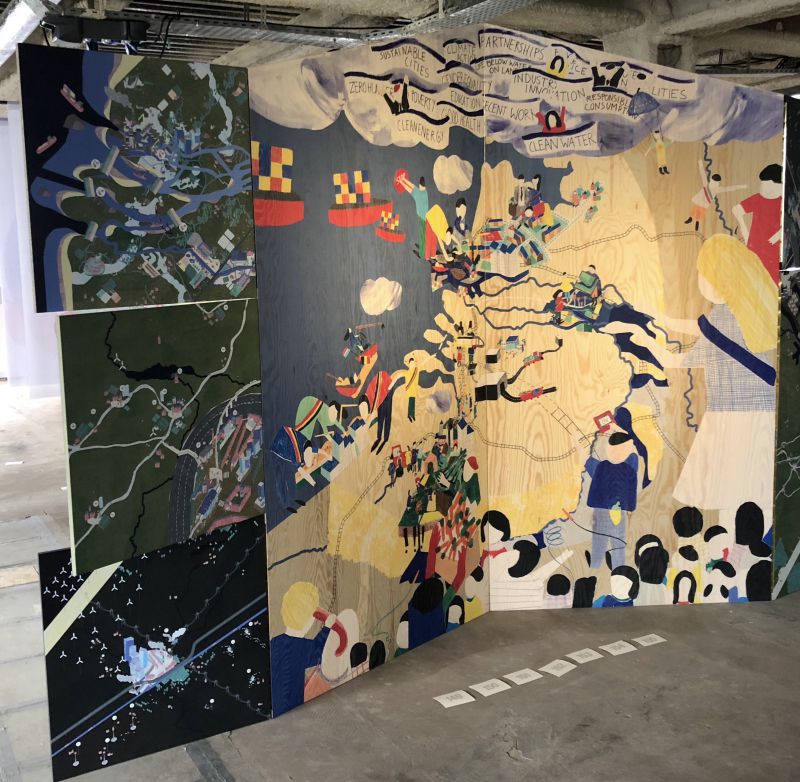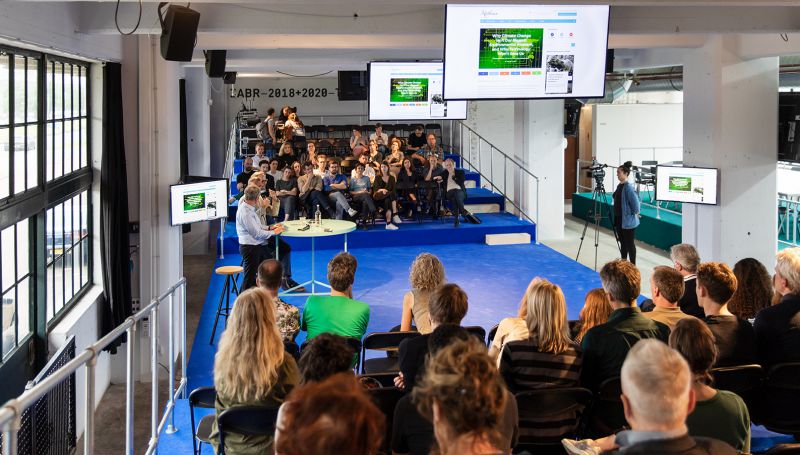
picture: Aad Hoogendoorn
The entire program can be revisited by clicking here, what follows is a selection.
High Noon
Every Tuesday to Friday at 12:30 p.m., High Noon discussed issues such as: What has to change? and: What can we change? with the audience. Guest speakers include special Envoy for International Water Affairs Henk Ovink, Dutch Government Advisor for the Physical Living Environment Daan Zandbelt and Dutch Government Advisor for the Landscape Berno Strootman, and former IABR curator and expert par excellence in the field of energy and space Dirk Sijmons.
Atelier Government Architect
During the biennale, the Atelier Government Architect hosted five sessions in which Dutch Government Architect and IABR curator Floris Alkemade explicitly interacted with the audience. Together with invited speakers, he introduced themes such as care, food production, refugee relief, the next generation, always in connection with the design challenges that arose after the economic crisis. The Atelier also introduced its latest, The Missing Link inspired program, Here Comes the Sun.
Resilient Rotterdam and the Energy Transition
Together with Resilient Rotterdam (Department of Urban Development), the IABR organized a two-day international conference, Resilient Cities and the Energy Transition. The City of Rotterdam reported back on the progress it made with its first resilience strategy, which was launched during the previous biennale in 2016. And the IABR presented the first results of the IABR–Atelier Rotterdam. The City and the IABR subsequently explored the roadmap towards a resilient Rotterdam.
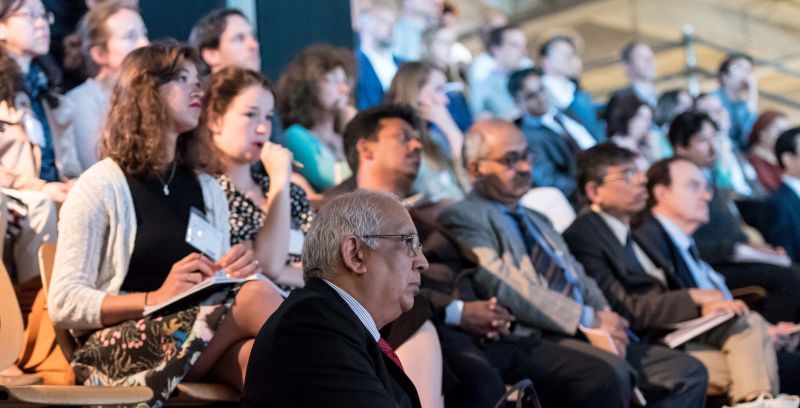
picture: Hans Tak
Test Site M4H+: the Merwe-Vierhavens District as a Testing Ground
Under the auspices of the IABR–Atelier Rotterdam, the City and Port of Rotterdam and the IABR have established Test Site M4H+, in which the city harbor M4H and the surrounding neighborhoods serve as a testing ground to explore ways to use the energy transition to help launch a much broader transformation that also involves generating social benefits.
The agenda of the IABR–Atelier Rotterdam steered the program of three consecutive Fridays. On the table were issues like, amongst others, the future development of the Bospolder-Tussendijken quarter, the first quarter in Rotterdam where the Atelier actively explores the concept of the Energy Quarter.
Test Site M4H+: the Merwe-Vierhavens District as a Showcase
The IABR asked a number of parties that have been active in the district for quite some time to put together a program on the occasion of the biennale.
Studio Makkink & Bey presented the Water School, welcoming visitors at its Marconistraat studio on six Fridays. The Water School, the prototype of a new kind of school currently under development, took the form of a work exhibition and a temporary knowledge center. The Studio used the biennale as a platform to propel plans for the school to the next level.
Read more here.
Every Thursday in June, the five design offices united in the Keile Collective seized the opportunity provided by the IABR agenda to organize field trips, workshops, and lectures about and by businesses and entrepreneurs in the area, which linked issues such as waste, energy, water and food, and circular area development to the themes of the IABR.
Read more here.
Throughout the biennale, Studio Roosegaarde, based in the M4H District, presented the Smog Free Project, a series of innovations by Daan Roosegaarde that reduce pollution and offer an experience that provides inspiration for a clean future at the same time.
Prospects for Action in the Delta
For the more than 40 practices united in the Delta Atelier, the 2018 work biennale was the springboard for the joint research and work trajectory that runs until 2020. In eight work sessions – grouped on the basis of different transition leaps as defined by the curators – and in other meetings, some open to the general public, some closed, they worked towards a large joint work conference that was held at the end of the biennale and that present the agenda for the three-year research trajectory that will culminate in the next edition, IABR–2020.
Towards Energetic Living
In a series of three Tuesday evening public access lectures and debates at the interface of architecture, energy transition and living environment, the Architecture Institute Rotterdam (AIR) translated the energy challenge to the context of the built environment, the biggest end user of energy and an important work area of the energy transition. In Rotterdam the subject of an energetic cultural change has hardly come up at all. How can the city not only ensure that it realizes future housing challenges it faces in an energy-neutral way, but also that the existing city takes part in the energy transition? How can neighborhoods and districts make both a qualitative leap and an energy leap, and make them in time?
And more
In addition, every Saturday one of the curators hosted a guided tour of the exhibition, the IABR–Atelier East Flanders Core Region gave a presentation, there was a comprehensive program on the Saturday of the opening weekend, there were Wunderkammer-performances, bike tours through the M4H + district, public discussions with design offices, a special program developed by the Creative Industries Fund NL, and much more.
Want to read back on all that happened, then see our agenda.
Program Credits
curators
Floris Alkemade
Leo Van Broeck
George Brugmans
Joachim Declerck
program and sites project development
Manon van den Bliek, Marieke Francke
assistants to the curators
Simone Huijbregts, Cato Joris, Julie Mabilde, Hanne Mangelschots, Gijs Frieling, Tania Hertveld, Cateau Robberechts, Bas Vereecken
project manager
Lisette Schmetz
production and planning
Anne van Summeren, Levar Matroos
graphic design
Studio de Ronners
marketing and communication
Bonnie Kirkels, Nadine Hofman
copy editing and translations
InOtherWords translation & editing
D’Laine Camp, Gerda ten Cate, Maria van Tol
